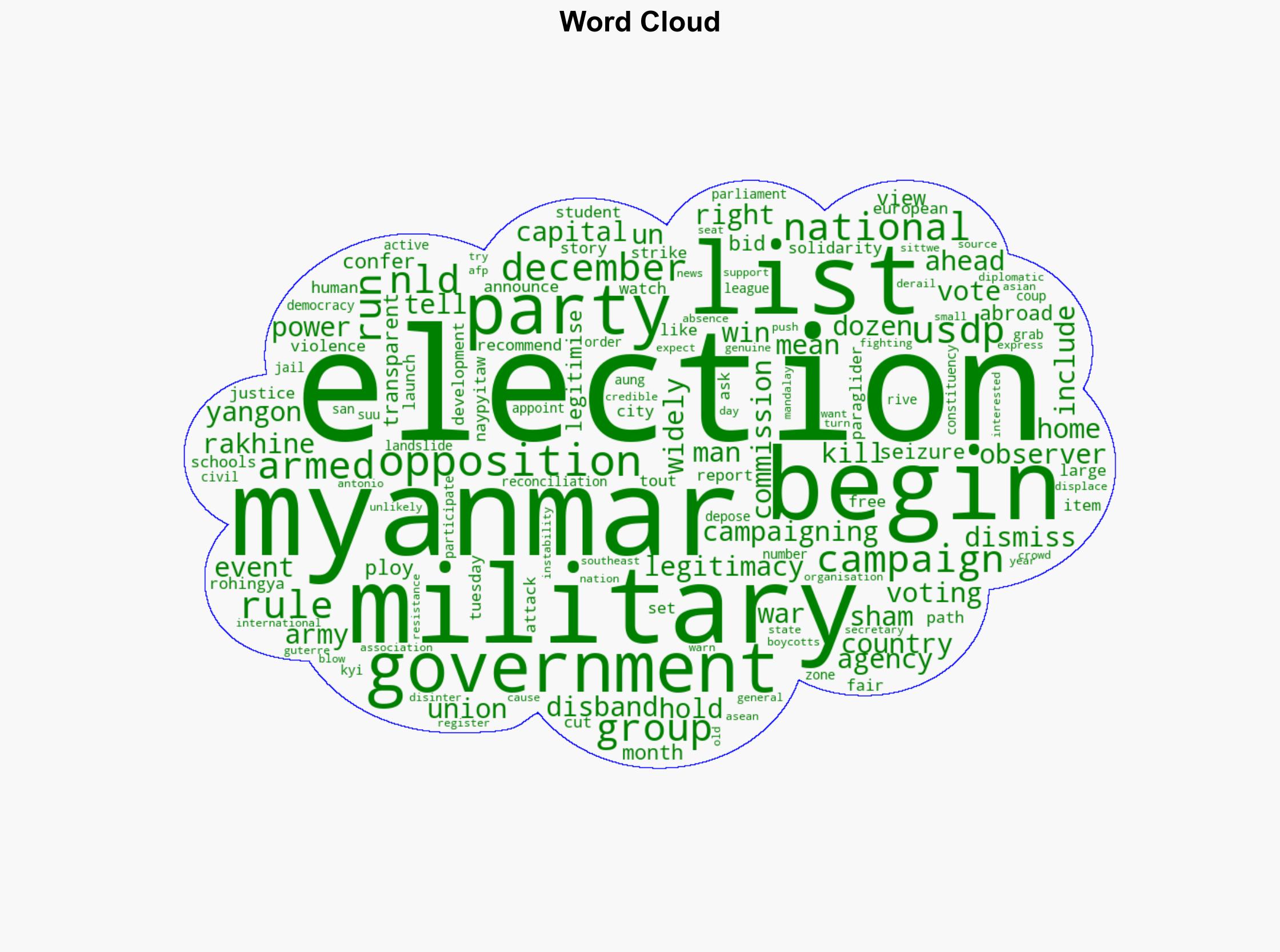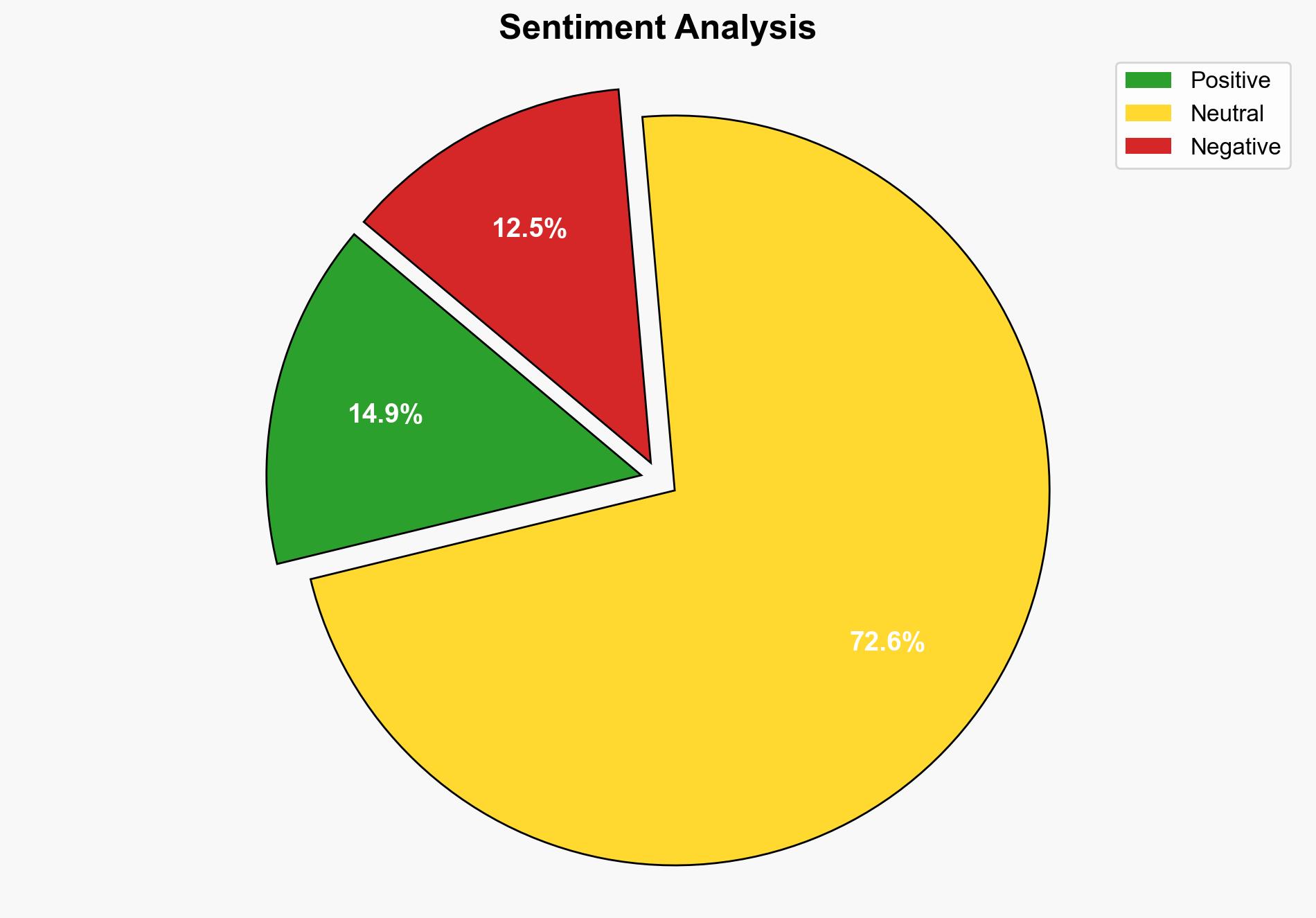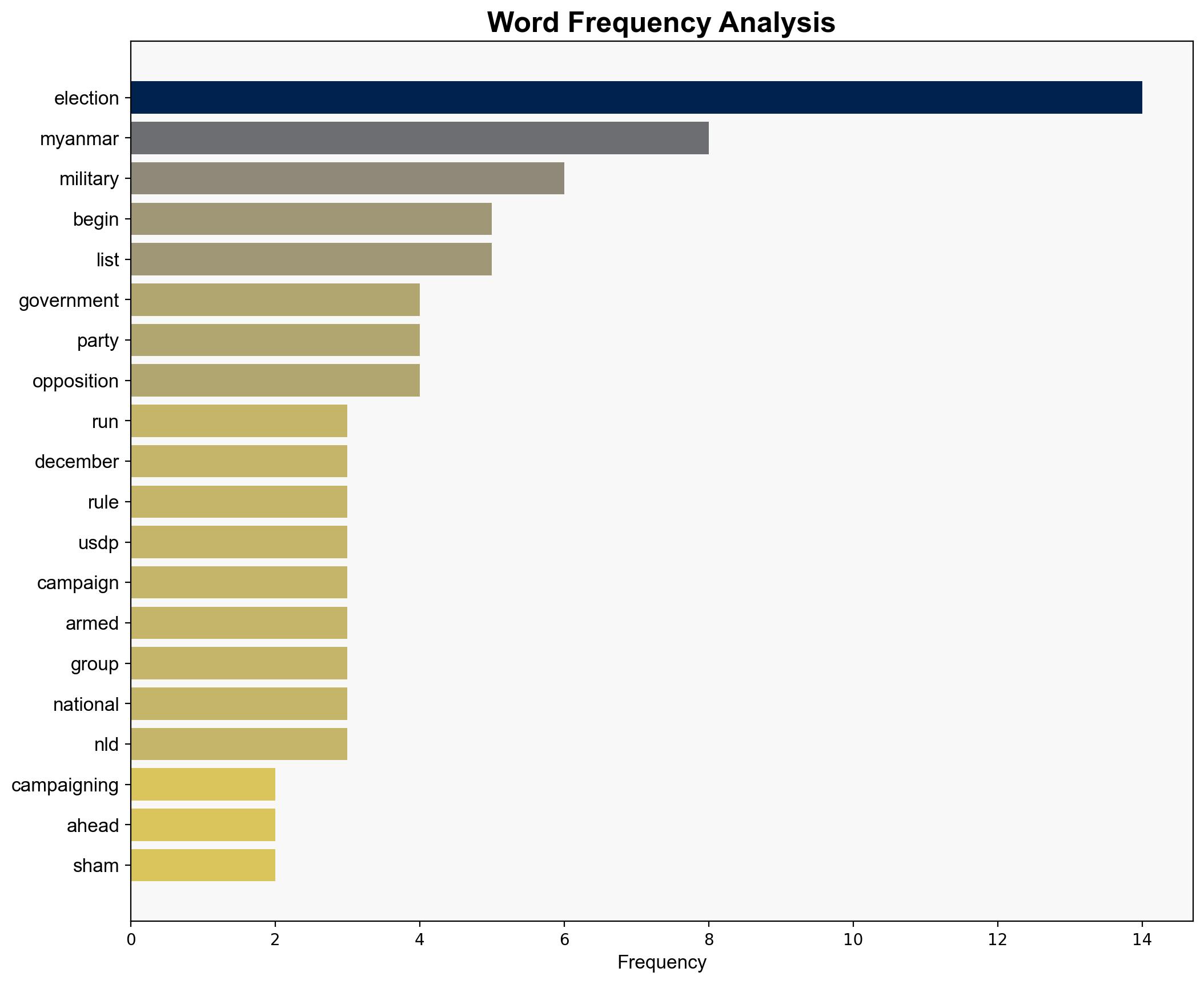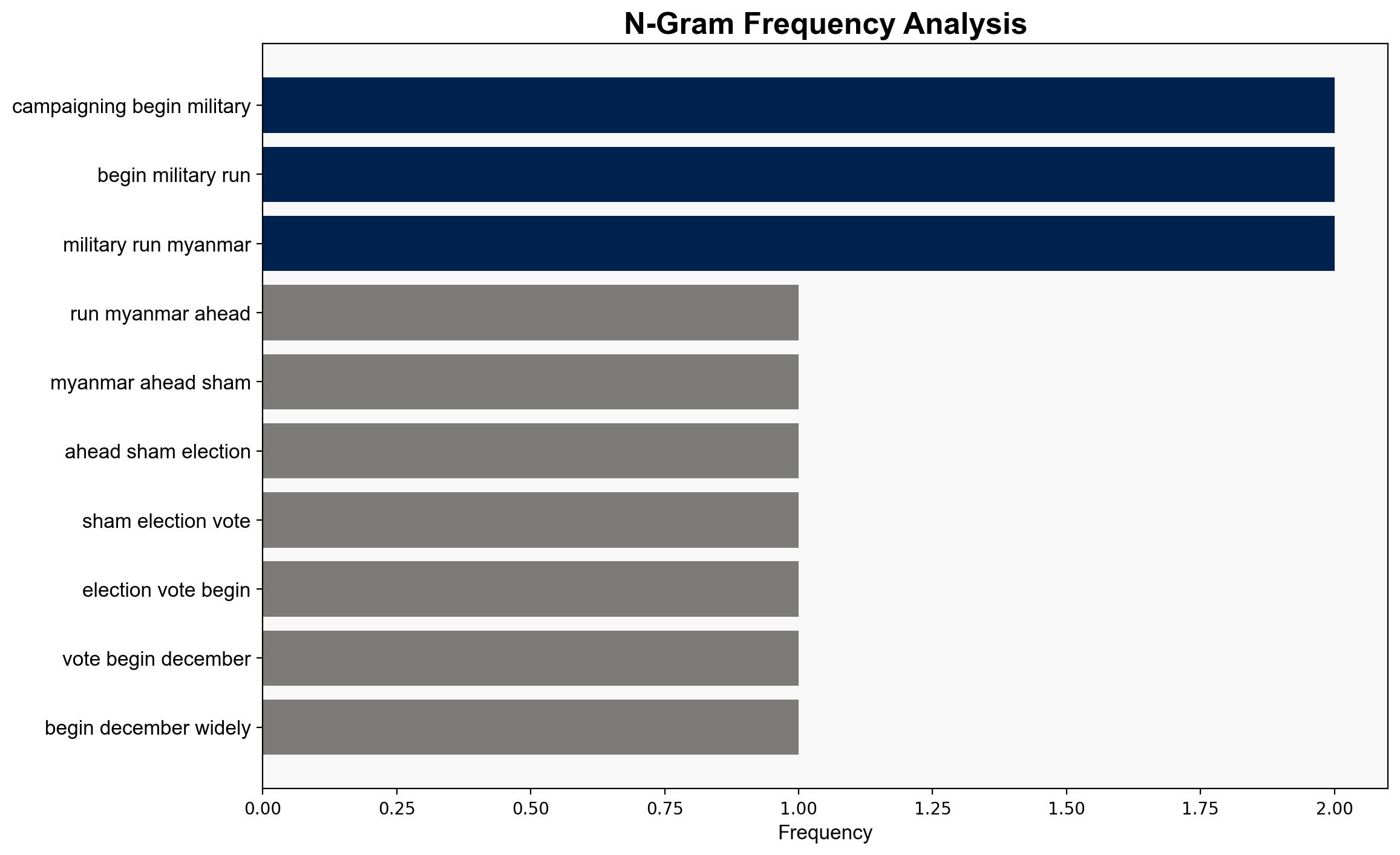Campaigning begins in military-run Myanmar ahead of sham elections – Al Jazeera English
Published on: 2025-10-28
Intelligence Report: Campaigning begins in military-run Myanmar ahead of sham elections – Al Jazeera English
1. BLUF (Bottom Line Up Front)
The most supported hypothesis is that the upcoming elections in Myanmar are a strategic maneuver by the military government to legitimize its rule rather than a genuine democratic process. This assessment is made with a high confidence level due to the widespread international and domestic dismissal of the elections as a sham. It is recommended that international bodies increase diplomatic pressure and consider targeted sanctions to deter further consolidation of military power.
2. Competing Hypotheses
1. **Hypothesis A**: The elections are a genuine attempt by the military government to transition towards a more democratic governance structure.
– **Supporting Evidence**: The military government is promoting the elections as a path to reconciliation and stability.
– **Contradictory Evidence**: The elections are widely dismissed as a sham by international observers and human rights groups. Key opposition parties have been disbanded, and the elections are occurring in active war zones.
2. **Hypothesis B**: The elections are primarily a facade to legitimize the military’s continued control over Myanmar.
– **Supporting Evidence**: The military-backed USDP is expected to win due to the absence of credible opposition. The international community, including the European Commission, has refused to send observers, indicating a lack of confidence in the process.
– **Contradictory Evidence**: There is minimal evidence suggesting any genuine democratic intent from the military government.
3. Key Assumptions and Red Flags
– **Assumptions**: It is assumed that the military government is primarily motivated by the desire to maintain power rather than genuine democratic reform.
– **Red Flags**: The disbandment of opposition parties and the exclusion of key political figures like Aung San Suu Kyi highlight potential manipulation of the electoral process.
– **Blind Spots**: Limited information on internal dissent within the military or potential fractures in their support base.
4. Implications and Strategic Risks
– **Geopolitical Risks**: The elections could exacerbate regional instability, particularly if they lead to increased civil unrest or international condemnation.
– **Economic Risks**: Continued military rule may result in sustained economic sanctions, further isolating Myanmar economically.
– **Psychological Risks**: The perception of illegitimacy may fuel further resistance movements, increasing the potential for violence.
5. Recommendations and Outlook
- **Mitigation**: Encourage ASEAN and international partners to apply diplomatic pressure for genuine democratic reforms.
- **Exploitation**: Support civil society and opposition groups in Myanmar to strengthen democratic resilience.
- **Scenario Projections**:
– **Best Case**: International pressure leads to a more inclusive electoral process.
– **Worst Case**: Escalation of violence and further international isolation.
– **Most Likely**: The military consolidates power, facing continued international condemnation and domestic unrest.
6. Key Individuals and Entities
– **Aung San Suu Kyi**: Deposed leader and key opposition figure.
– **USDP**: Military-backed political party expected to dominate the elections.
– **Antonio Guterres**: UN Secretary-General, warning of potential instability.
7. Thematic Tags
national security threats, geopolitical instability, electoral manipulation, regional focus




